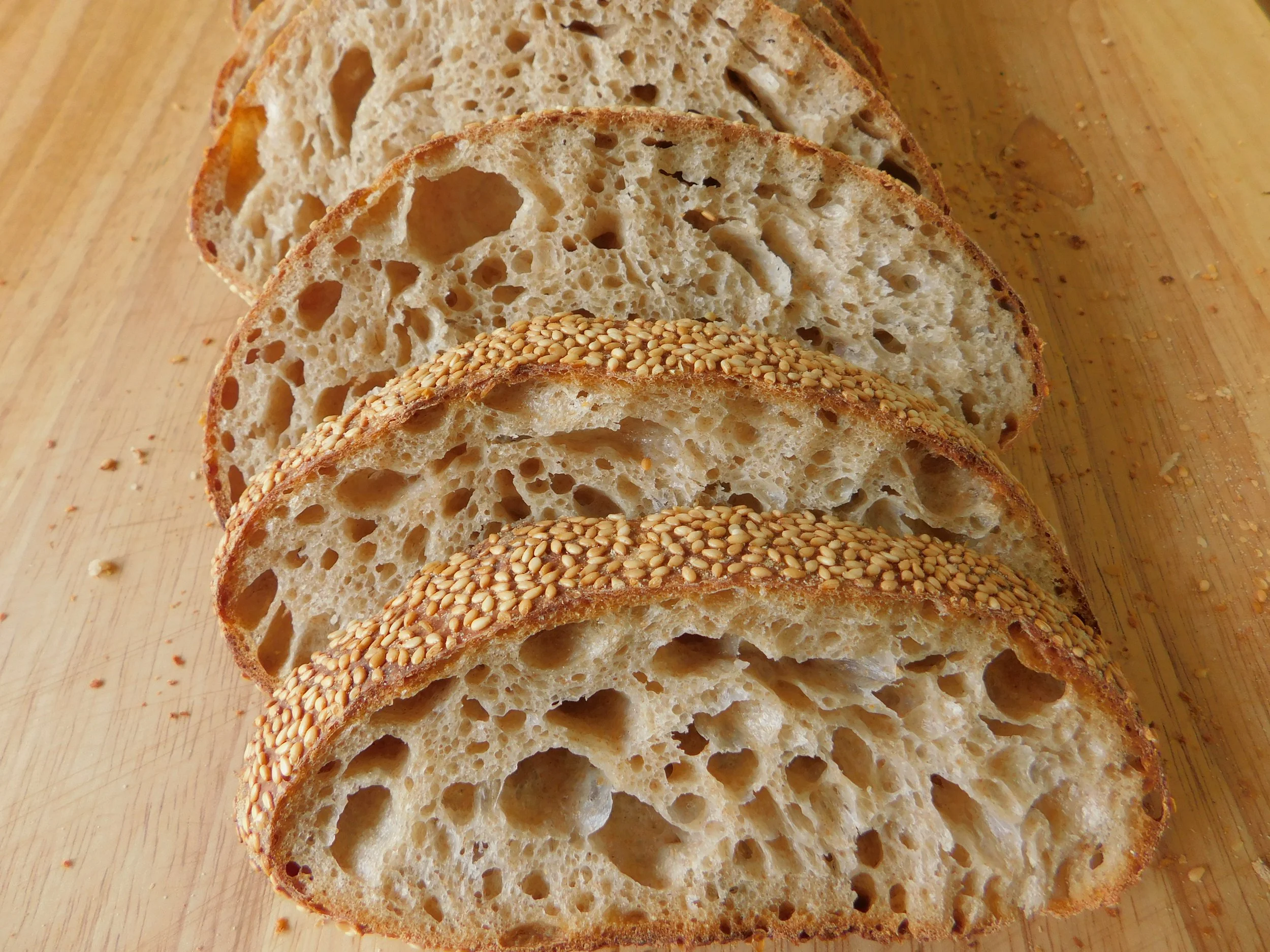Troubleshooting your dough
There are a few issues that new bakers commonly experience. Here I offer some tips as to the possible cause and suggestions how to improve on the next bake.
My bread doesn’t rise when it’s baked.
Here are a few reasons why:
The bread is overproofed - meaning it fermented for too long before baking (signs of overproofing are large billowy bubbles in the dough)
The dough may have been underproofed - it didn’t ferment long enough (this would look like few air bubbles on the surface of the dough and feel dense when shaping or scoring)
Over handling during shaping can compress the gentle air bubbles that build up in the dough which result in less rise during baking
Your starter may not have been optimally “active” when mixing it in your dough. A healthy starter should show signs of activity and increase at least a 1/3 in volume within about 4 hours. This all depends on when it was last replenished with flour and water AND the ambient temperature where it sits. Ideal temperatures for the good lactic acid bacteria (LAB) are between 74 F (23 C) - 78 F (26 C).
The dough may have been too cold during fermentation.
My bread doesn’t expand where I scored it (disappears during baking)
The scoring was too shallow. Next time try going deeper.
The dough strength may not have been sufficiently developed. Try additional stretch and folds during bulk fermentation.
The dough may have been over handled. Too much handling during shaping can weaken the gluten network so the dough doesn’t “catch” where it was scored to create the “ear”.
The bread is overproofed - meaning it fermented for too long before baking (signs of overproofing are large billowy bubbles in the dough)
The bread developed a really thick crust
There wasn’t enough steam when putting the dough in the oven. The purpose of steam is to slow the crust from forming so that the bread can optimally rise during the first part of baking. If there isn’t enough steam the rise will be hindered and an overly thick crust can form.
The crumb is really dense
The bread is overproofed - meaning it fermented for too long before baking (signs of overproofing are large billowy bubbles in the dough)
The dough may have been underproofed - it didn’t ferment long enough (this would look like few air bubbles on the surface of the dough and feel dense when shaping or scoring)
Over handling during shaping can compress the gentle air bubbles that build up in the dough which result in less rise during baking
You used a large percentage of a whole wheat flour.
The crumb has really large wholes and doesn’t hold my butter!
The bread is overproofed - meaning it fermented for too long before baking (signs of overproofing are large billowy bubbles in the dough) Large uneven alveoli are an indication of over proofed dough. Retarding the dough in as little as 15 - 20 minutes sooner may make all the difference! For more info on the best time to end bulk fermentation see this article by Maurizio Leo.

